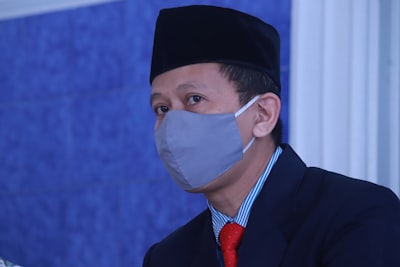Examining Wealth Disclosure and Corruption in Indonesian Infrastructure Projects
Indonesia continues to grapple with corruption scandals involving high-ranking officials. The recent uproar surrounding the wealth of the North Sumatra Head of Public Works and Housing (Kadis PUPR Sumut), who became a corruption suspect in a major road project, has reignited public debate about transparency, government accountability, and the risks embedded in large infrastructure projects. This article explores the broader issues at play, including how officials amass significant wealth, the impact of corruption on public infrastructure, and what reforms are needed to restore trust.
Keywords:
- Corruption in infrastructure projects
- Public official wealth disclosure
- Kadis PUPR Sumut
- North Sumatra corruption case
- Indonesian anti-corruption efforts
- Project road bribery
Indonesia's Ongoing Battle With Corruption in Public Infrastructure
The Corruption Eradication Commission (KPK) has consistently spotlighted the risks of graft in procuring and building large public infrastructure projects—from roads and bridges to housing. The arrest of a Kadis PUPR Sumut official on corruption charges linked to a strategic road project has prompted many Indonesians to seek answers:
- How do these officials accumulate substantial assets?
- What mechanisms enable or prevent corruption in the public works sector?
- How do such cases undermine the quality of public works and public trust?
The Wealth of Public Officials: Transparency and Trust
How Are Government Official Assets Disclosed?
In Indonesia, government officials are required to periodically declare their assets, known as "Laporan Harta Kekayaan Penyelenggara Negara" (LHKPN). Yet, the scale of some asset declarations—luxury vehicles, real estate, and millions in bank accounts—often stokes public suspicion. Searches related to "harta kekayaan pejabat negara" and "transparency of public official wealth Indonesia" have spiked following high-profile investigations.
Common Wealth Forms:
- Real estate (houses, villas, apartments)
- Cars and luxury vehicles
- Jewelry and luxury items
- Stocks, mutual funds, and savings accounts
What Gaps Exist in the System?
- Weak oversight of asset reporting
- Infrequent audits or verification
- Use of nominee names or hidden assets
Corruption in Road and Infrastructure Projects: Why Is It So Pervasive?
Indonesia's ambitious infrastructure push has often been hampered by corruption. Road construction in particular is a major target for graft due to the large budgets and many layers of subcontracting. Searches for "proyek jalan korupsi", "anggaran pembangunan jalan transparan", and "penyebab korupsi kementerian PUPR" reflect public demand for answers.
Key Issues:
- Inflated project costs through kickbacks or collusion
- Low-quality results due to budget misappropriation
- Delayed or abandoned projects
- Erosion of public welfare and safety
What Reforms and Solutions Are On the Table?
For Transparency:
- Digital, publicly accessible asset registries
- Routine audits and whistleblower protections
- Stronger enforcement by the KPK and judiciary
For Infrastructure Integrity:
- Transparent, open e-procurement systems
- Community monitoring programs ("transparency road projects")
- Blacklisting corrupt contractors
Frequently Asked Questions (FAQs)
Q: How do I access official wealth reports in Indonesia? A: The KPK's e-LHKPN system allows public access to many reports, though some information is redacted for privacy.
Q: What are the penalties for officials found guilty of project corruption? A: They can face multi-year prison sentences, heavy fines, confiscation of assets, and lifetime bans from public office.
Q: How can citizens report suspected corruption? A: The KPK offers online and in-person complaint channels, and many provincial governments also have complaint portals.
Conclusion: Balancing Progress and Integrity in Indonesia's Infrastructure Boom
The Kadis PUPR Sumut road project corruption case brings Indonesia's ongoing challenge into sharp focus: how to fund and build the infrastructure the country needs without sacrificing transparency, integrity, and public trust. Addressing gaps in asset disclosure and corruption safeguards is essential not just for accountability, but also for elevating the quality and safety of public works for all Indonesians.
This article was inspired by the headline: 'Harta Kekayaan Kadis PUPR Sumut yang Jadi Tersangka Korupsi Proyek Jalan - detikcom'.

Comments
No comments yet. Be the first to comment!